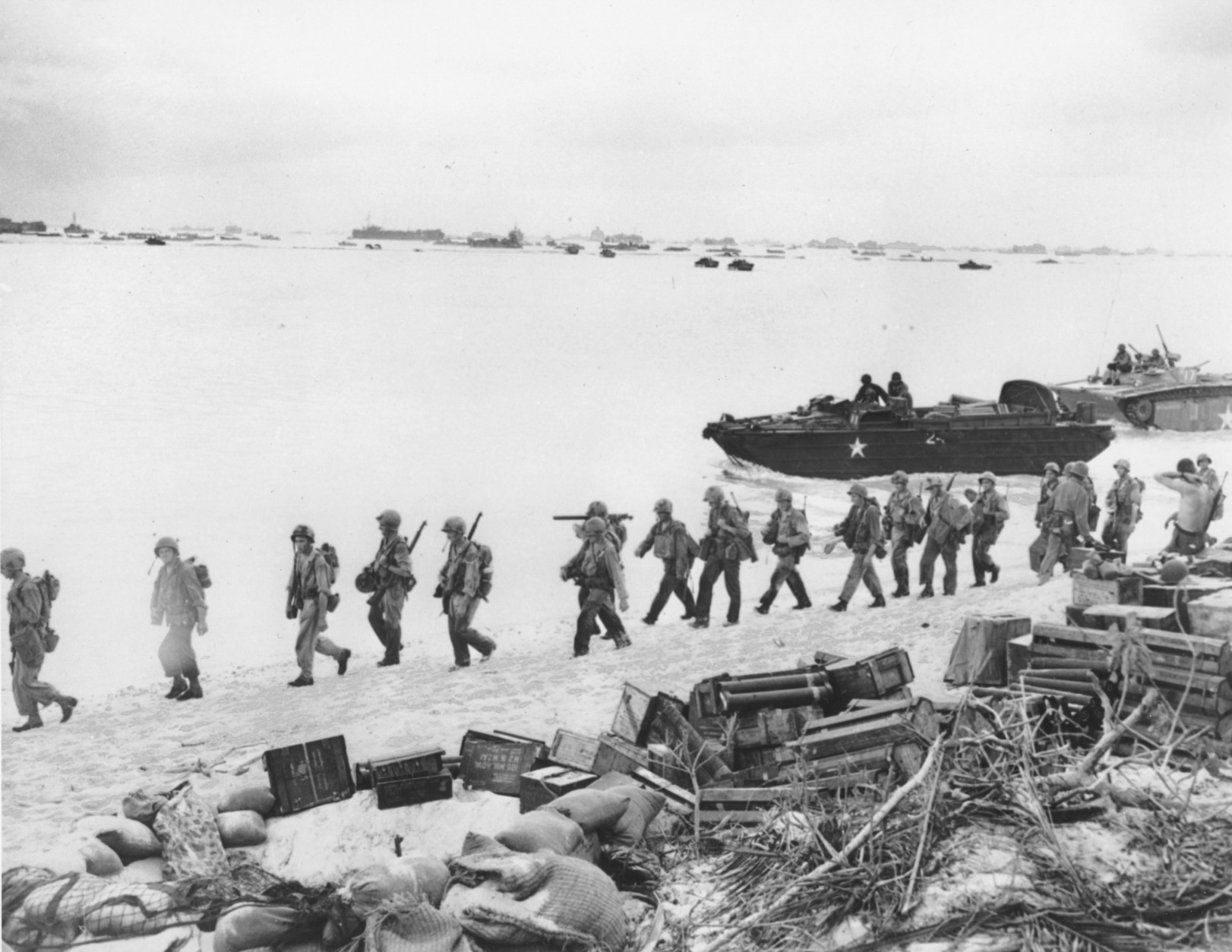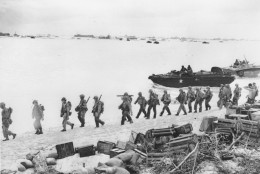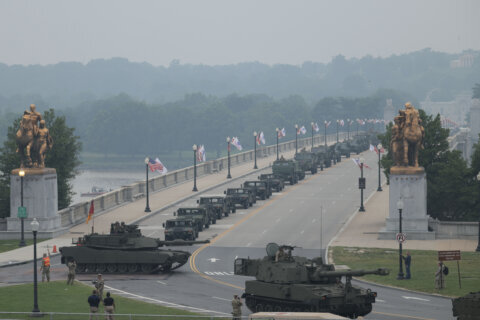


In 1904, more than 1,000 people died when fire erupted aboard the steamboat General Slocum in New York’s East River. (AP Photo)
In 1934, President Franklin D. Roosevelt signed an act making the National Guard part of the U.S. Army in the event of war or national emergency. 1965 file photo showing National Guardsmen. (AP Photo/File)





Today is Saturday, June 15, the 166th day of 2019. There are 199 days left in the year.
Today’s Highlight in History:
On June 15, 1944, American forces began their successful invasion of Saipan (sy-PAN’) during World War II. B-29 Superfortresses carried out their first raids on Japan.
On this date:
In 1215, England’s King John put his seal to Magna Carta (“the Great Charter”) at Runnymede.
In 1520, Pope Leo X issued a papal bull in which he threatened to excommunicate Martin Luther if he did not recant his religious beliefs, a threat that was carried out the following January.
In 1775, the Second Continental Congress voted unanimously to appoint George Washington head of the Continental Army.
In 1836, Arkansas became the 25th state.
In 1864, Secretary of War Edwin M. Stanton signed an order establishing a military burial ground which became Arlington National Cemetery in Virginia.
In 1904, more than 1,000 people died when fire erupted aboard the steamboat General Slocum in New York’s East River.
In 1934, President Franklin D. Roosevelt signed an act making the National Guard part of the U.S. Army in the event of war or national emergency.
In 1938, Johnny Vander Meer pitched his second consecutive no-hitter, leading the Cincinnati Reds to a 6-0 victory over the Brooklyn Dodgers in the first night game at Ebbets Field, four days after leaving the Boston Bees hitless by a score of 3-0.
In 1955, the United States and Britain signed a cooperation agreement concerning atomic information for “mutual defence purposes.”
In 1969, the variety show “Hee Haw,” a fast-paced mixture of country music and comedy skits, debuted on CBS-TV.
In 1992, Vice President Dan Quayle, relying on a faulty flash card, erroneously instructed Trenton, N.J., sixth-grade student William Figueroa to spell “potato” as “potatoe” during a spelling bee.
In 1993, former Texas Gov. John Connally, who was wounded in the gunfire that killed President John F. Kennedy, died in Houston at age 76.
Ten years ago: Gen. Stanley McChrystal took charge of nearly 90,000 U.S. and NATO troops in Afghanistan. President Barack Obama, pushing health care reform before the annual meeting of the American Medical Association in Chicago, bluntly told the doctors he was against their highest legislative priority — limiting malpractice awards. The president returned to the White House, where he met with Italian Premier Silvio Berlusconi.
Five years ago: Israeli Prime Minister Benjamin Netanyahu accused the Hamas militant group of kidnapping three Israeli teenagers who had disappeared on June 12 (the teens’ bodies would be found on June 30). Death claimed “American Top 40” host Casey Kasem, 82; “Flowers for Algernon” author Daniel Keyes, 86; and French actor Jacques Bergerac, 87. Golfer Martin Kaymer of Germany won the U.S. Open. The San Antonio Spurs won their fifth NBA championship, beating the Miami Heat 104-87 to win the series in five games.
One year ago: Former Trump campaign chairman Paul Manafort was jailed to await two criminal trials; a federal judge revoked his house arrest over allegations of witness tampering in special counsel Robert Mueller’s investigation. (Manafort would be sentenced to more than seven years in prison on federal charges.) President Donald Trump announced a 25 percent tariff on up to $50 billion in Chinese imports, to take effect July 6. Rene Boucher, a neighbor of U.S. Sen. Rand Paul, was sentenced to 30 days in prison for tackling Paul while he was out doing yard work at his Kentucky home.
Copyright © 2026 The Associated Press. All rights reserved. This material may not be published, broadcast, written or redistributed.







